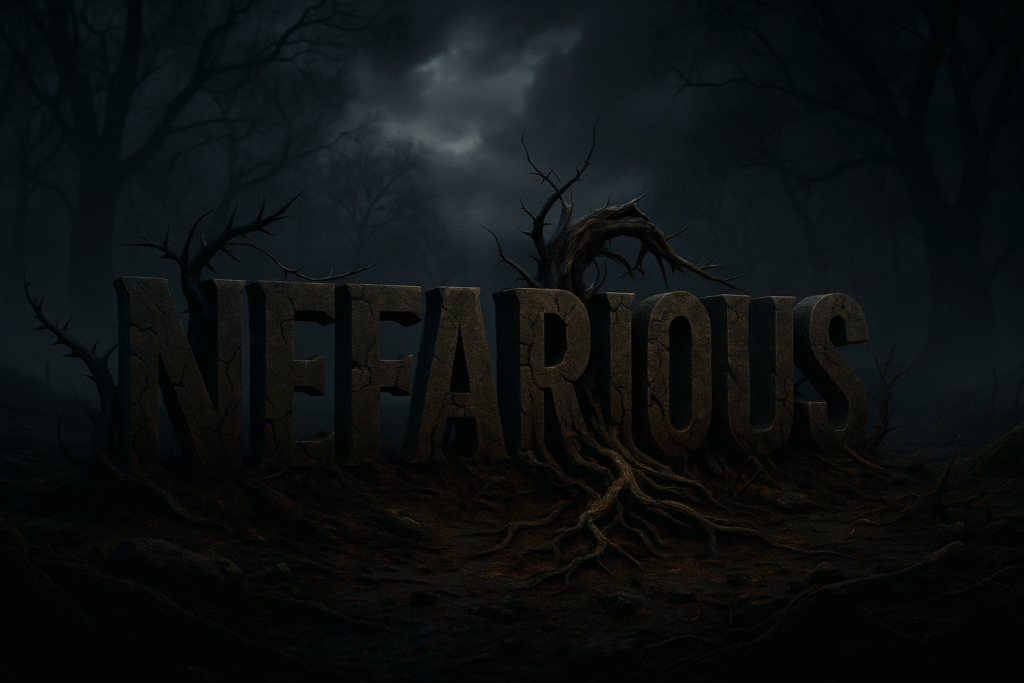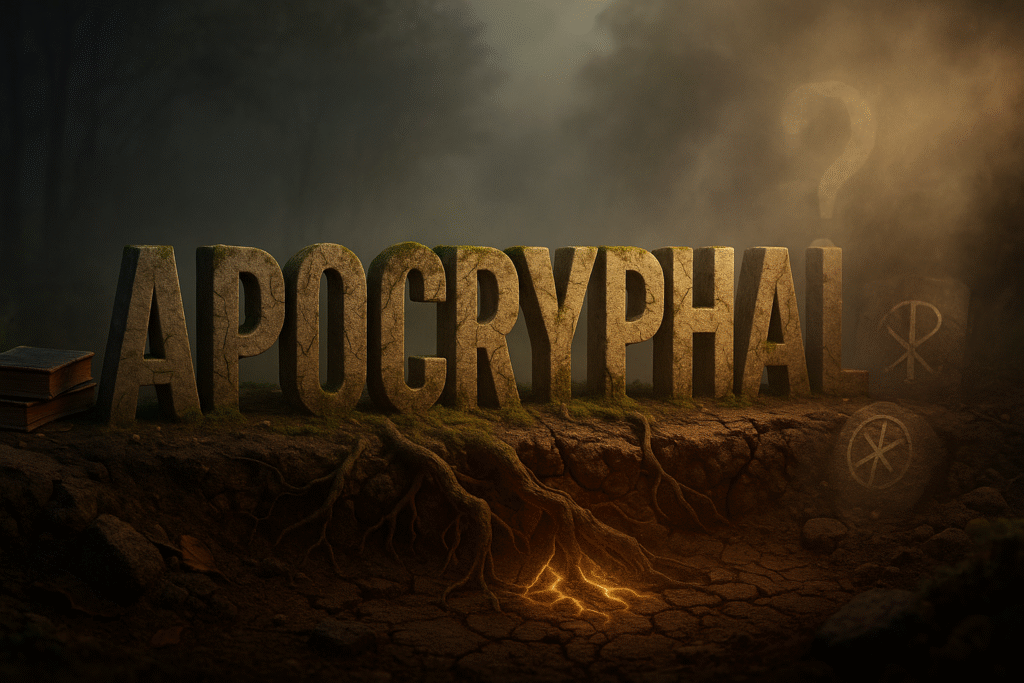Orphic

Today's Word Orphic OR-fik Definition (adjective) Mysterious, entrancing, or possessing a hidden, almost mystical power—often poetic or philosophical. Example The speaker’s orphic language left the crowd spellbound, unsure whether they had understood or just felt. Word Origin Early 17th century: from Greek Orphikos, from Orpheus, the mythological poet and musician who could charm all living things—even stones—with his song. Fun Fact The word Orphic comes from Orpheus, the legendary Greek figure whose music could tame beasts and sway the gods of the underworld. In modern use, it refers to language, art, or experiences that feel trance-like, profound, or poetic in a way that’s hard to explain. Orphic writing, for example, might not make literal sense but still moves or mesmerizes the reader, like music or myth.
Hallowed

Today's Word Hallowed HAL-ohd Definition (adjective) Regarded as holy, honored, or greatly revered. Example They walked silently through the hallowed halls of the memorial. Word Origin Old English hāliged, past participle of hālgian meaning “to make holy” — related to the word holy itself. Fun Fact The word hallowed appears most famously in the phrase “hallowed be thy name” from the Lord’s Prayer, but it shows up everywhere from Presidential speeches to pop culture. It’s often used for places, rituals, or values considered deeply important, especially when there’s a sense of reverence or loss. Think of hallowed ground at battlefields, memorials, or even sports stadiums where legends once played—it’s about history, honor, and awe.
Eudaemonia

Today's Word Eudaemonia yoo-dee-MOH-nee-uh Definition (noun) A state of human flourishing or well-being; happiness achieved through living virtuously. Example According to Aristotle, true eudaemonia comes from fulfilling one’s potential with purpose. Word Origin Early 19th century: from Greek eudaimonia, from eu ‘well’ + daimōn ‘spirit’. Fun Fact Eudaemonia is central to Aristotelian ethics and ancient Greek philosophy. Unlike modern ideas of happiness as fleeting pleasure, this word refers to a lasting sense of purpose, growth, and fulfillment. It’s about living a good life—not just a fun one. In modern psychology, eudaemonic well-being is contrasted with hedonic well-being, and it’s often linked to meaning, connection, and personal development.
Nefarious

Today's Word Nefarious nuh-FAIR-ee-uhs Definition (adjective) Wicked or criminal in an especially immoral or villainous way. Example The detective uncovered a nefarious plot to rig the election. Word Origin Early 17th century: from Latin nefarious, from nefas ‘wrong, crime’, from ne- ‘not’ + fas ‘divine law’. Fun Fact Nefarious isn’t just bad—it’s actively, intentionally evil. The word shows up often in stories with villains, conspiracies, and moral corruption. Whether it’s a nefarious villain in a superhero movie or a nefarious scheme in a true-crime podcast, the word adds weight. It’s a favorite for describing actions that go beyond unethical—into unforgivable.
Vestigial

Today's Word Vestigial veh-STIJ-ee-uhl Definition (adjective) Remaining as a small or incomplete part of something that was once much larger or more developed. Example The cave fish have vestigial eyes that no longer function in complete darkness. Word Origin Late 18th century: from Latin vestigium meaning “footprint” or “trace.” Fun Fact Vestigial is often used in biology to describe body parts that have lost their original function—like the human appendix, tailbone, or wisdom teeth. But the word also works metaphorically: a vestigial tradition might survive long after its meaning has faded. It’s a favorite in evolutionary science, architecture, and even fashion—where tiny flourishes hint at functions once essential, now mostly symbolic.
Apocryphal

Today's Word Apocryphal uh-POK-ruh-fuhl Definition (adjective) Of doubtful authenticity, although widely believed to be true. Example The story of Einstein failing math as a child is entirely apocryphal. Word Origin Late 16th century: from ecclesiastical Latin apocryphalus, from Greek apokruphos ‘hidden’, from apokruptein ‘to hide away’. Fun Fact Apocryphal is often used to describe myths, urban legends, and viral stories that sound believable—but fall apart under scrutiny. The word was originally used to describe religious texts that were excluded from the official Bible due to doubtful origins. Today, you’ll find it in journalism, education, and pop culture critique—anywhere facts are murky and stories stick around despite being debunked.
Mercurial

Today's Word Mercurial mur-KYOOR-ee-uhl Definition (adjective) Subject to sudden or unpredictable changes of mood or mind. Example Her mercurial temperament made collaboration both exciting and exhausting. Word Origin Mid 17th century: from Latin mercurialis ‘relating to the god Mercury’, known for his speed and unpredictability. Fun Fact Mercurial originally referred to qualities associated with Mercury, the Roman messenger god—quick, clever, and elusive. Today, the word is often used to describe emotionally volatile people, though it can also apply to markets, creative energy, or political behavior. In psychology, a mercurial personality isn’t just moody—it’s brilliant, erratic, and hard to pin down.
Sanguine

Today's Word Sanguine SANG-gwin Definition (adjective) Optimistic or hopeful, especially in a difficult situation. Example Despite the company setbacks, the CEO remained sanguine about the future. Word Origin Middle English: from Old French sanguin(e), from Latin sanguineus ‘of blood’ — originally referring to the belief that a person’s blood temperament made them cheerful. Fun Fact Historically, sanguine was one of the four “humors” in ancient medicine. People with a sanguine temperament were believed to be cheerful, sociable, and energetic, thanks to an abundance of blood in their system. Today, the word is still used to describe people who remain confident and upbeat, especially when others are panicking. It’s a subtle way to say, they’re keeping it together—even when things look bleak.
Inure

Today's Word Inure ih-NUR Definition (verb) To become accustomed to something, especially something unpleasant. Example Over time, she became inured to the constant noise of the city. Word Origin Late Middle English: from Old French enurer, based on Latin inurare — in- (into) + urere (to burn), originally meaning “to burn in” or “harden by fire.” Fun Fact Inure often describes the mental or emotional process of adapting to difficulty, stress, or discomfort. It’s frequently used in psychology, journalism, and military contexts—anywhere people learn to cope with harsh conditions. You might become inured to cold weather, online trolling, or even tragic news headlines. It’s a word that suggests resilience—but also desensitization.
Deleterious

Today's Word Deleterious del-uh-TEER-ee-uhs Definition (adjective) Causing harm or damage, often in a subtle or unexpected way. Example Prolonged exposure to stress can have deleterious effects on your health. Word Origin Mid 17th century: from medieval Latin deleterius, from Greek dēlētērios ‘noxious’, from dēlētērios (related to destroy or *to hurt’). Fun Fact Deleterious is often used when something appears harmless but turns out to be damaging—like sugary drinks, misinformation, or prolonged noise. It’s not the loud crash—it’s the slow rot. You’ll find it in medical journals, legal decisions, and HR handbooks. It’s a favorite when talking about effects that are subtle, cumulative, and serious—without sounding dramatic.
